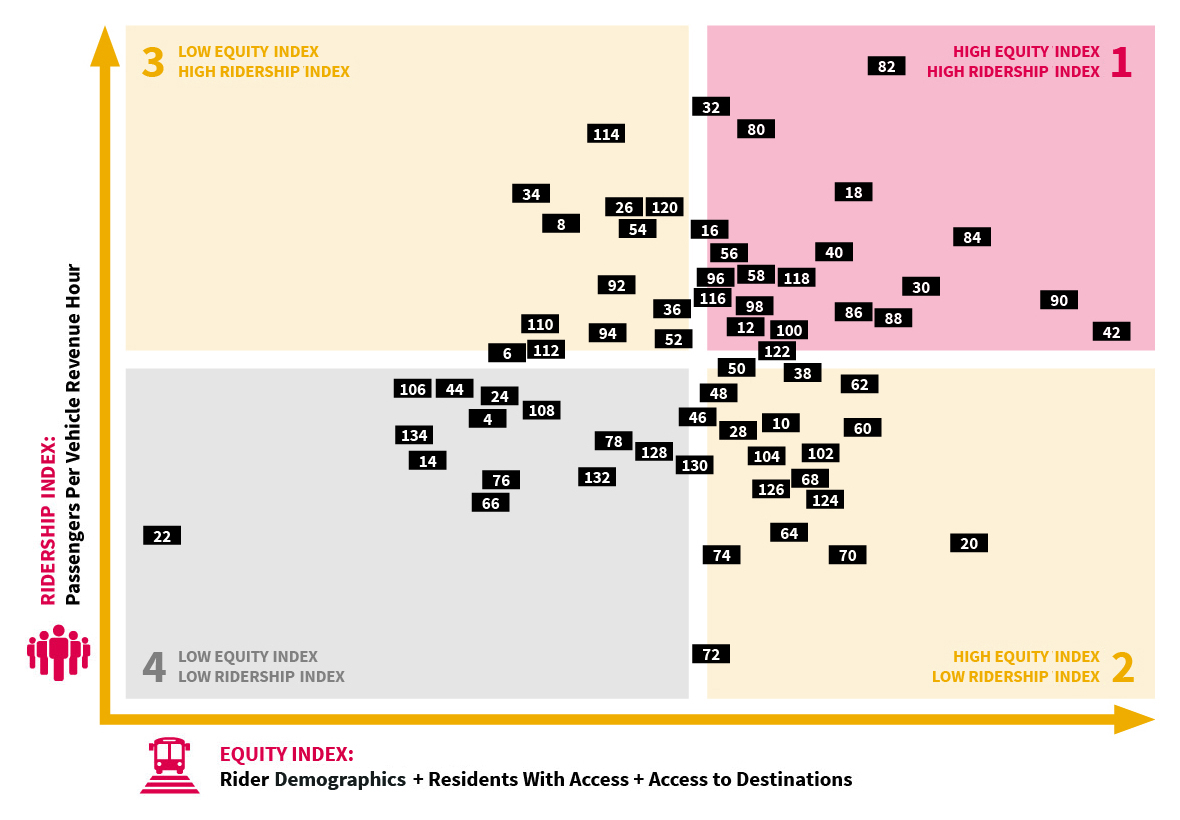The Service Equity Framework project aimed to develop an equity framework by which MTA can strategically allocate resources based on equity values and metrics. To further refine the role of equity in MTA’s planning process, Foursquare ITP assisted MTA in developing an “Equity Framework” document which provides a public-facing explanation of how MTA looks at different aspects of equity throughout the planning process. It succinctly describes the role of Title VI and Service Equity Analyses, and when/where they are conducted during the planning process.
As part of the Equity Framework, Foursquare ITP also developed a new methodology for assessing the importance of each route to the overall equity of the BaltimoreLink system. This analysis used the demographics of riders surveyed on each route and demographic information on transit-oriented populations and jobs within each route’s service area to create a single equity score for each route. The resulting equity score was then plotted against route productivity (measured in terms of passengers per hour) and grouped into quadrants based on system averages for each metric.
Our analysis helped inform the agency’s responses to trends observed in performance data within a framework that accounts for both transit efficiency and transit accessibility. In addition to developing an “Equity Framework” document that explains equity throughout the planning process, Foursquare ITP also developed a new methodology for assessing route importance to overall equity.

Solutions and Outcomes
- Identified a new, data-driven methodology for assessing route importance to overall equity.
- Produced an “Equity Framework” document that guides the agency on applying equity throughout the transit service planning process.